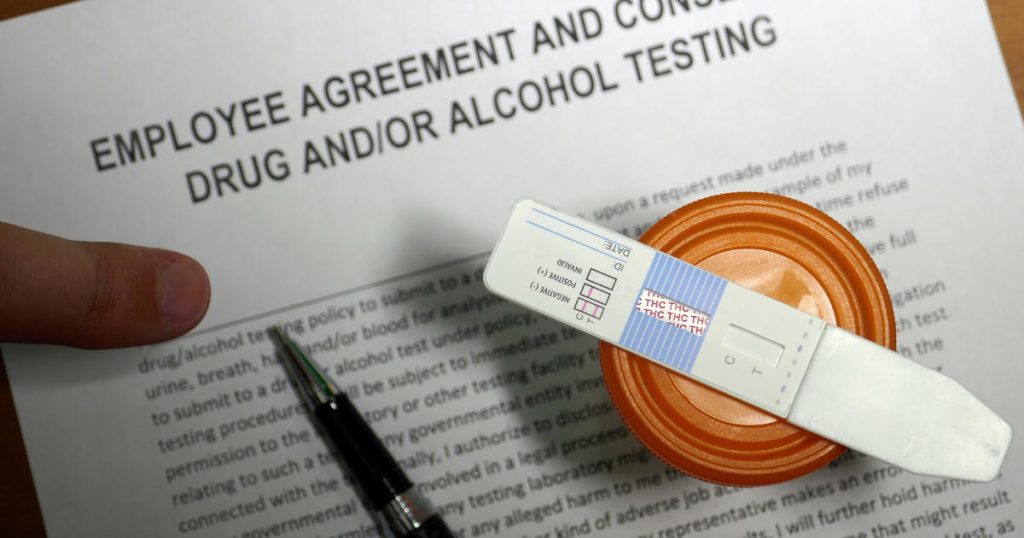A recent study conducted by Quest Diagnostics, a national drug testing company, has shown a significant increase in the number of U.S. workers attempting to cheat on employer drug tests by tampering with urine samples or using other methods to avoid detection. This surge in workers trying to hide their drug use coincides with the legalization of recreational marijuana in more states across the country. Employers are now facing the challenge of adapting their drug-testing policies in response to the changing legal environment and societal norms around cannabis use, as well as ensuring a safe workplace environment.
The main purpose of employer-mandated drug tests is to serve as a deterrence mechanism and maintain workplace safety. Quest’s analysis of lab data also revealed that the drug positivity rate for the overall U.S. workforce has remained at a record high of 4.6%, highlighting the prevalence of drug use among employees. This data indicates a growing acceptance and use of drugs, particularly marijuana, which may contribute to some individuals feeling the need to cheat on drug tests. Experts have raised concerns about the implications of these findings, emphasizing the importance of improving drug testing policies and procedures.
Workers attempting to cheat on drug tests usually employ one of two methods: swapping their urine samples with synthetic formulas or animal urine, or submitting tampered specimens. As the normalization of drug use continues in society, employers are facing challenges in detecting drug usage among their employees. There is a pressing need for open dialogue among employees, employers, and lawmakers regarding the impacts of drug legalization and its implications for the workplace. Alternative methods of drug testing, such as oral fluid testing approved by the U.S. Department of Transportation, offer potential solutions to improve the accuracy and efficiency of detecting drug use.
The legalization of recreational marijuana in 24 states as of April 2024 has further complicated the landscape of drug testing in the workplace. Employers are urged to reevaluate their drug-testing policies and procedures to address the growing prevalence of drug use among employees and the increased attempts at cheating on drug tests. This shift in the legal environment and societal attitudes towards cannabis use is reshaping how employers approach drug testing in the workplace, with a focus on maintaining safety and productivity.
The findings of the study underscore the importance of drug tests as a tool for ensuring workplace safety and community well-being. When employees attempt to cheat on drug tests or policies and procedures fail, it can put everyone at risk. To address these challenges, there is a need for better communication and collaboration among stakeholders to understand the impacts of drug legalization on the workplace and develop effective strategies for detecting drug use. By exploring alternative methods of drug testing, such as oral fluid testing, employers can enhance their ability to identify drug use among employees promptly and accurately.
In conclusion, the increase in workers attempting to cheat on drug tests highlights the evolving landscape of drug testing in response to changing legal and societal norms around drug use. Employers are facing challenges in maintaining workplace safety and productivity amidst the prevalence of drug use among employees. By engaging in open dialogue, improving drug testing policies, and exploring alternative testing methods, employers can adapt to the shifting environment and address the implications of drug legalization on the workplace. Collaborative efforts among employees, employers, and lawmakers are essential to navigating the complexities of drug testing in the era of marijuana legalization.


